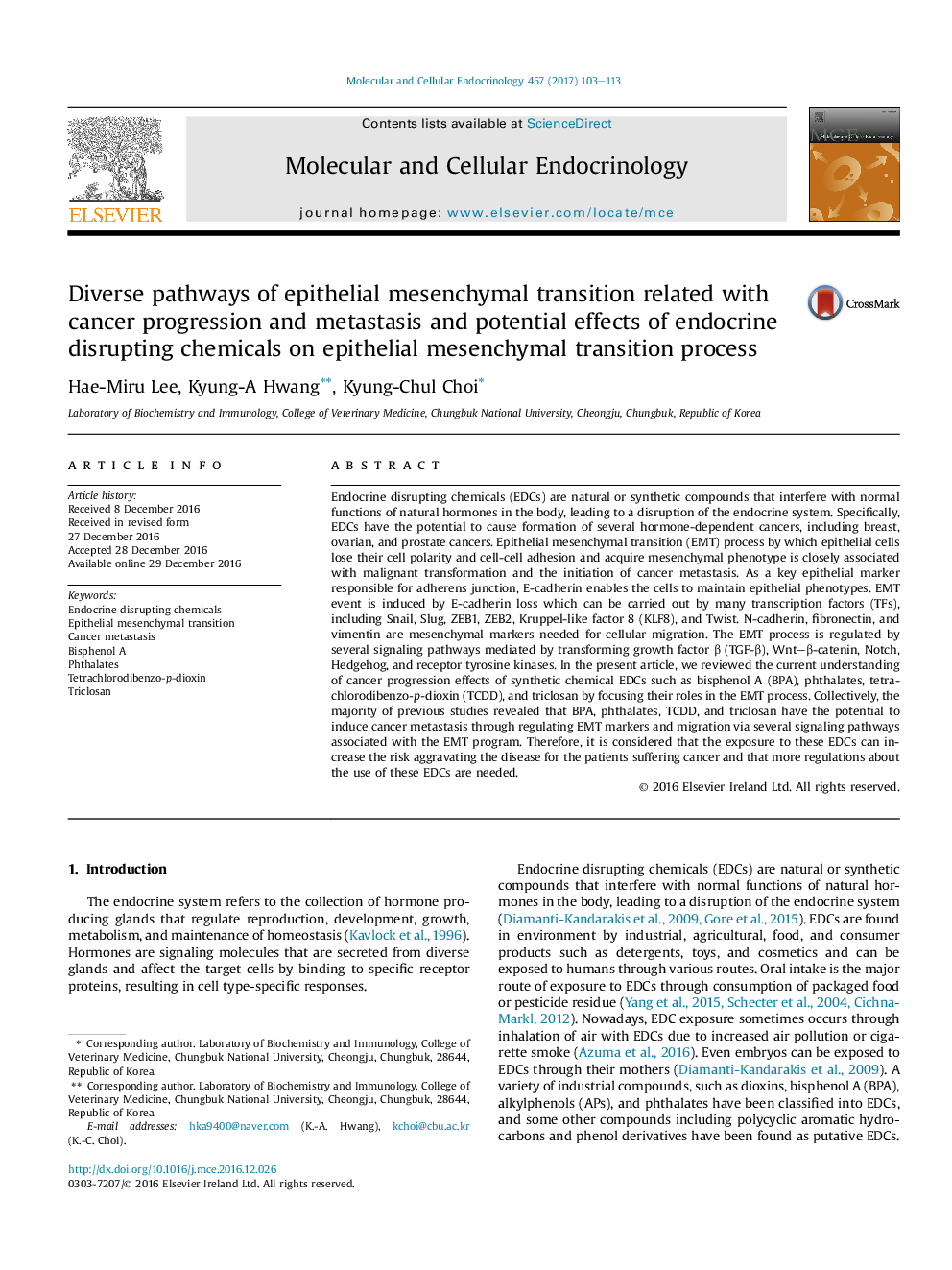| کد مقاله | کد نشریه | سال انتشار | مقاله انگلیسی | نسخه تمام متن |
|---|---|---|---|---|
| 5533990 | 1550822 | 2017 | 11 صفحه PDF | دانلود رایگان |
- EDCs interfere with normal hormone functions and cause endocrine disruptions and cancers.
- Epithelial cells lose their cell-cell adhesion and acquire mesenchymal phenotypes via EMT.
- EMT is closely associated with the initiation of cancer metastasis.
- EDCs induce cancer metastasis through regulation of EMT-related signaling pathways.
Endocrine disrupting chemicals (EDCs) are natural or synthetic compounds that interfere with normal functions of natural hormones in the body, leading to a disruption of the endocrine system. Specifically, EDCs have the potential to cause formation of several hormone-dependent cancers, including breast, ovarian, and prostate cancers. Epithelial mesenchymal transition (EMT) process by which epithelial cells lose their cell polarity and cell-cell adhesion and acquire mesenchymal phenotype is closely associated with malignant transformation and the initiation of cancer metastasis. As a key epithelial marker responsible for adherens junction, E-cadherin enables the cells to maintain epithelial phenotypes. EMT event is induced by E-cadherin loss which can be carried out by many transcription factors (TFs), including Snail, Slug, ZEB1, ZEB2, Kruppel-like factor 8 (KLF8), and Twist. N-cadherin, fibronectin, and vimentin are mesenchymal markers needed for cellular migration. The EMT process is regulated by several signaling pathways mediated by transforming growth factor β (TGF-β), Wnt-β-catenin, Notch, Hedgehog, and receptor tyrosine kinases. In the present article, we reviewed the current understanding of cancer progression effects of synthetic chemical EDCs such as bisphenol A (BPA), phthalates, tetrachlorodibenzo-p-dioxin (TCDD), and triclosan by focusing their roles in the EMT process. Collectively, the majority of previous studies revealed that BPA, phthalates, TCDD, and triclosan have the potential to induce cancer metastasis through regulating EMT markers and migration via several signaling pathways associated with the EMT program. Therefore, it is considered that the exposure to these EDCs can increase the risk aggravating the disease for the patients suffering cancer and that more regulations about the use of these EDCs are needed.
260
Journal: Molecular and Cellular Endocrinology - Volume 457, 5 December 2017, Pages 103-113
